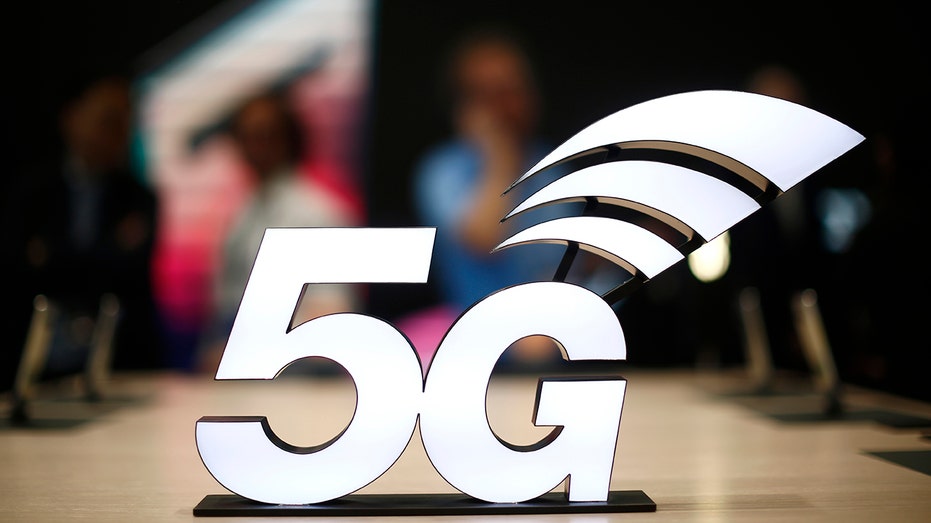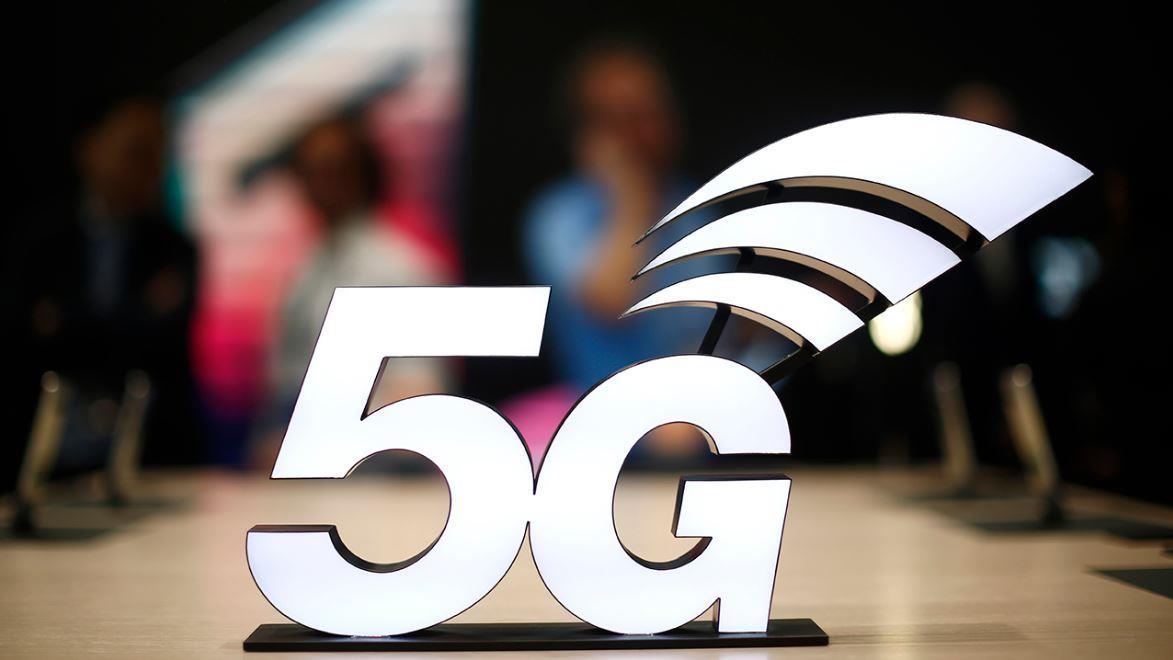FCC's new 5G push could mean faster phones, rural broadband and more money for the US
What it means for your phone and the USA
You keep hearing about 5G, but you may not know why.
It was in the news again Monday. Federal Communications Commission Chairman Ajit Pai said he is advocating for a public auction of airwaves currently used by satellite companies (the so-called C-band spectrum) for new fifth-generation wireless networks or the 5G you have heard so much about.
Pai's timing just about coincided with the announcement of a bill from Sen. Roger Wicker (R-Miss.) and Sen. John Thune (R-SD) requiring the FCC to "conduct a public auction of C band spectrum." The also calls for the auction to start before Dec. 31, 2020.
T-MOBILE TO LAUNCH NATIONWIDE 5G NETWORK AHEAD OF CHRISTMAS
So what does this mean?

A banner of the 5G network is displayed during the Mobile World Congress wireless show, in Barcelona, Spain. (AP Photo/Manu Fernandez, File)
Well, according to chipmaker Qualcomm, 5G will "elevate the mobile network to not only interconnect people, but also interconnect and control machines, objects, and devices. It will deliver new levels of performance and efficiency that will empower new user experiences and connect new industries."
Or as Verizon tells you on its website: "it is expected to be one of the fastest wireless technologies ever created."
But it is not just about speed. Rural areas -- underserved in the broadband marketplace -- could see new opportunities funding from a public 5G auction as Pai recently outlined.
GET FOX BUSINESS ON THE GO BY CLICKING HERE
Expanded and faster broadband is something everyone wants, but not everyone wants to rush these auctions. Satellite companies don't own the "spectrum," they've just been using it for the last four decades or so for "broadcasting programming to 120 million US homes," according to the C-Band Alliance, an industry group that includes Intelsat and SES.
This group argues that the FCC lacks the authority to take over and run an auction without compensating them.
AT&T, which owns satellite service, DirecTV and is the country's biggest mobile phone provider, doesn't disagree.
"As we have previously said, any path forward must chart a course toward a fair, open and transparent auction; compensation to C-Band licensees for relinquishing rights and relocating services; proceeds for the U.S. Treasury; and a clear and reasonable transition plan that ensures broadcasters, programmers and earth station operators that their services will not be interrupted and that their relocation costs will be reimbursed," Joan Marsh, AT&T executive vice president of Regulatory & State External Affairs, said in a statement.
A public auction run by the FCC could translate to more money for the government. Any proceeds would go directly to the U.S. Treasury. In the last 25 years, the FCC has conducted 93 auctions netting $116 billion for the Treasury.
C-Band Alliance has said it would not leave the U.S. Treasury empty-handed if it was allowed to hold the auction privately. One official estimated it could be as much as $8 billion.
Leading the charge to press the FCC to push for a public auction has been Sen. John Kennedy (R-La.). In a recent speech on the Senate floor, Kennedy said he was encouraging the FCC "to hold a public auction, take some of that $60 billion they’re going to get and use it for rural broadband to make sure that the people who live in rural areas get taken care of as well as the people who live in the cities."
Kennedy also argues that 5G is an issue of nationalism as well as national security. Noting that some of the satellite companies are headquartered outside the U..S., Intelsat, for example, is based in Luxembourg, Kennedy said.
"Our job is not to maximize profits for foreign corporations," he said. "Our job is to help our people, and this 5G has national security implications. Before we give away these 5G airwaves to a foreign corporation, we need to know who they’re going to give it to. What if they give it to China?"
HUAWEI CAN HELP ASSIST UNDERSERVED RURAL AMERICA, COMPANY'S US SECURITY CHIEF SAYS
Competition with China is a concern on the 5G front. A 2018 Deloitte report said China has outspent the U.S. by approximately $24 billion in 5G wireless infrastructure since 2015.
CLICK HERE TO READ MORE ON FOX BUSINESS
The FCC's Pai has warned that China's spending -- and lead -- on the 5G front could lead to the creation of "two different internets" which Pai added will "be something that's unfortunate for consumers and something that’s potentially dangerous in the long run."
